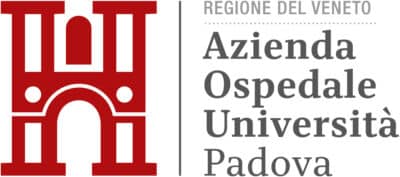

The Master’s Degree in Pediatric Pain Therapy and Palliative Care is a high-level academic program designed to provide specialized training in accordance with Law 38/2010 (Provisions to guarantee access to palliative care and pain therapy). In particular, it follows the directives issued by the Ministry of Education, University and Research in collaboration with the Ministry of Health (Master’s decree issued under Article 8, paragraph 1: Pain Therapy and Palliative Care – April 4, 2012), regarding the institution of the Master itself.
The program trains professionals with specific skills and experience in pediatric pain therapy and palliative care (paragraphs 2 and 3, Article 5), enabling them to work in public and private healthcare institutions as well as in non-profit organizations operating within the pediatric pain therapy and palliative care network.
The Master’s Degree in Pediatric Pain Therapy and Palliative Care enables participants to:
● Acquire scientific and clinical knowledge on the pathophysiology of acute, chronic, procedural, and terminal pain in pediatric patients, as well as on evaluation methods and applicable therapeutic techniques. It also provides training on managing chronic and terminal illness, as well as on ethical, legislative, and medico-legal issues associated with care.
● Apply knowledge and skills in the management of pediatric pain—whether acute, chronic, or terminal—and in organizing and coordinating multidisciplinary care for patients. The program also trains participants in the management of Pediatric Pain Therapy and Palliative Care Centers and in the selection and training of healthcare personnel.
● Develop autonomous judgment, enabling independent clinical, organizational, and ethical decision-making in pediatric pain management and end-of-life care, with the ability to address the daily challenges of working in a complex and highly specialized environment.
● Improve communication skills, developing advanced relational competencies to interact with patients, their families, and all members of the healthcare and support network, including non-profit sectors and volunteers.
The Master’s Degree in Pediatric Pain Therapy and Palliative Care prepares professionals with specific competencies and experience in the organizational and managerial aspects of the discipline. According to Law 38/2010, these professionals can coordinate regional reference centers and the network of pediatric pain therapy and palliative care, as well as work in public and private institutions and non-profit organizations operating nationwide.
Graduates of the program acquire specific professional competencies and are qualified to carry out clinical governance, planning, organization, and management activities within the public and private healthcare structures outlined in Law 38/2010, as well as within non-profit organizations working in pediatric pain therapy and palliative care.
The Master’s Degree in Pediatric Pain Therapy and Palliative Care provides training in the following areas:
● PEDIATRIC PALLIATIVE CARE: pain management and psychological support, with a focus on acute, chronic, and terminal pain.
● EPIDEMIOLOGY AND PEDIATRIC PALLIATIVE CARE: diseases and mortality/prevalence data to understand the care needs of this patient population.
● MANAGEMENT OF CHILDREN ELIGIBLE FOR PEDIATRIC PALLIATIVE CARE: individualized approaches; addressing death and bereavement; importance of respite care and home ventilation.
● PARENTAL EMPOWERMENT IN MANAGING INCURABLE ILLNESS: supporting parents in disease management, medication administration, use of medical devices, health monitoring, and Basic Life Support.
● ORGANIZATION AND MANAGEMENT OF PEDIATRIC PALLIATIVE CARE CENTERS/NETWORKS: needs analysis, resource estimation, creation of care models, cost evaluation, and quality indicators.
● BIOETHICS IN PEDIATRIC PALLIATIVE CARE: principles of bioethics, children’s rights and wishes, professional ethics, informed consent, and the role of ethics committees.
● LEGISLATIVE ASPECTS: relevant laws and regulations, regional legislation, off-label drug use, professional ethics, as well as patients’ and professionals’ rights and responsibilities.
● RESEARCH METHODOLOGY: how to conduct bibliographic research, analyze scientific articles, and apply appropriate methodologies in drafting research projects.
● PAIN IN PEDIATRIC SETTINGS: ETIOLOGY AND EPIDEMIOLOGY: definitions, pathophysiology, neonatal/pediatric specificities, prevalence/incidence data, and pain typologies.
● PAIN ASSESSMENT AND MEASUREMENT: evaluation of pediatric pain using algometric scales and age-specific approaches for infants, children, and adolescents.
● NON-PHARMACOLOGICAL THERAPY: techniques to improve children’s well-being through environmental and supportive interventions.
● PHARMACOLOGICAL THERAPY: principles of drug-based pain management, including non-opioids, opioids, adjuvants, anesthetics, and appropriate anesthesiological techniques.
● FLOW-CHARTS FOR PAIN MANAGEMENT: practical flow-charts for managing acute, procedural, chronic, recurrent, and terminal pain.
● TRAINING: glossary, definition of training programs and tools, with a focus on empowerment processes.
● CLINICAL AND ORGANIZATIONAL MANAGEMENT IN COMPLEX PATIENTS: strategies to assess care complexity, roles in the non-profit sector, and volunteer training.
● NEW HEALTHCARE SCENARIOS IN PEDIATRIC PATIENTS, “CLINICAL GOVERNANCE”: strategies and methods with a focus on innovative care models and multiprofessional integration for high-complexity pediatric patients.
● ORGANIZATION OF THE CARE NETWORK: principles and knowledge for managing integrated healthcare networks essential to this sector.
The general ranking of merit for the academic year 2025/26 will be published on the Italian page of this Master according to the timing provided in the Call.
Information
FAQ
Teaching is delivered in person, and 80% attendance is mandatory.
You must wait for the publication of the admission notice, which will be released in June, and follow all the instructions provided to submit your application (accessible by clicking the “Pre-enroll” button).

